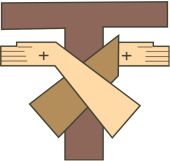Hi Andrew, Here's my try at the questions. 
1. Physical poverty has always meant for me not just a lack of monetary wealth, but a lack of social support, a lack of sustenance, a lack of work, and a lack of any hope of extracting one's self from this situation. It is imposed upon a person and results in a complete lack of choice resulting in a complete lack of human dignities. Extreme poverty affects every aspect of a persons life. As the basic needs of life are not even met, fundamental human rights are violated. Pope Benedict said that extreme poverty is; "a poverty that impedes people and families from living according to their dignity, a poverty that offends justice and equality, and as such, threatens peaceful coexistence." When we look at war in the Middle east is seems to me peace will be impossible without first addressing the extreme poverty which currently exists.
2. Chapter 13 of our Rule states that:
As the Father sees in every person the features of his Son, the firstborn of many brothers and sisters, so the Secular Franciscans with a gentle and courteous spirit accept all people as a gift of the Lord and an image of Christ.
A sense of community will make them joyful and ready to place themselves on an equal basis with all people, especially with the lowly for whom they shall strive to create conditions of life worthy of people redeemed by Christ.
This suggests a Franciscan imperative to work to improve the conditions of all those living in extreme poverty to restore the fundamental dignity promised to them created in the image of God.
3. Holy poverty as espoused by Francis is the voluntary acceptance of a simpler Gospel-based life style. Francis himself argued and attempted to sway the minds of the trades guilds and wealthy of Assisi to suppor those marginalized so they did not suffer extreme poverty, so that people could voluntary choose to life a Gospel existence in which the continued the earthly mission of Jesus Christ. "And preach as you go, saying, `The kingdom of heaven is at hand.' Heal the sick, raise the dead, cleanse lepers, cast out demons. You received without paying, give without pay. Take no gold, nor silver, nor copper in your belts, no bag for your journey, nor two tunics, nor sandals, nor a staff; for the laborer deserves his food. (Mat 10:7 - 10).
Pax et Bonum, Pat

